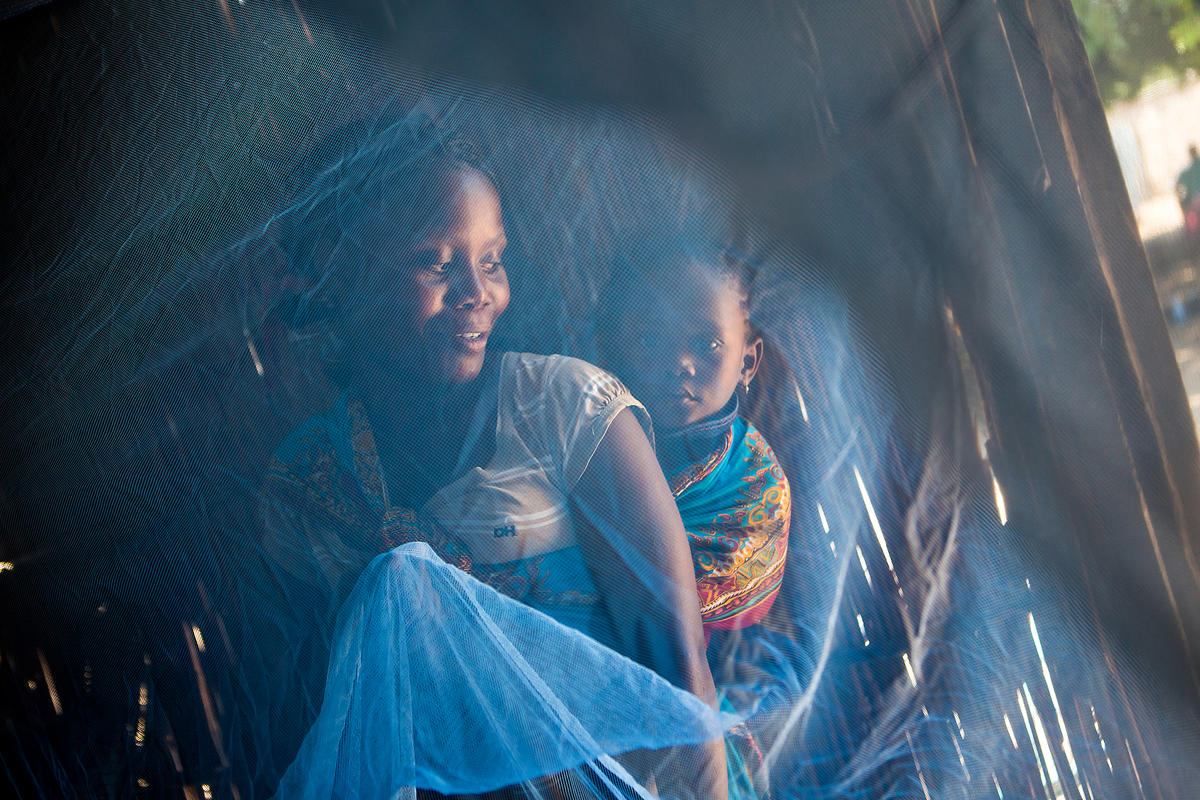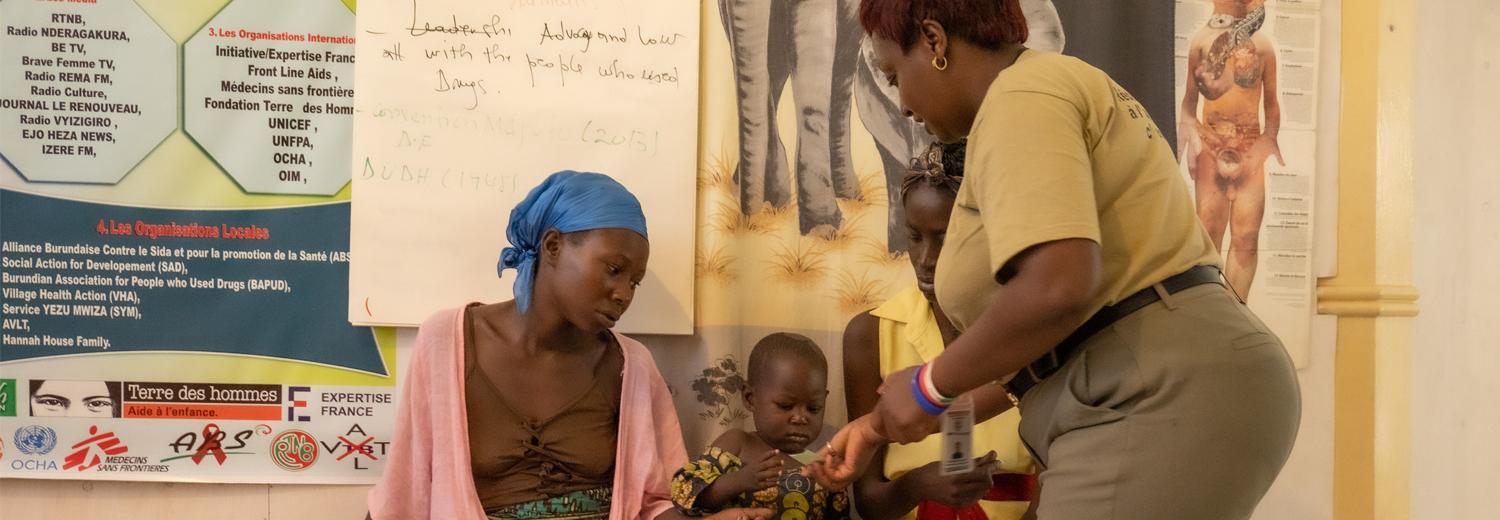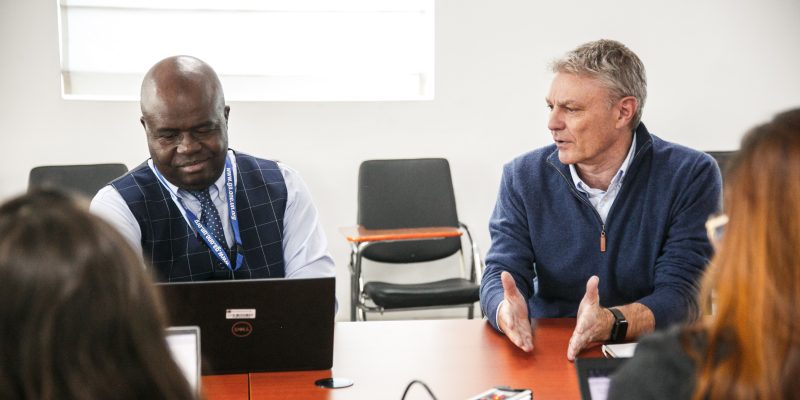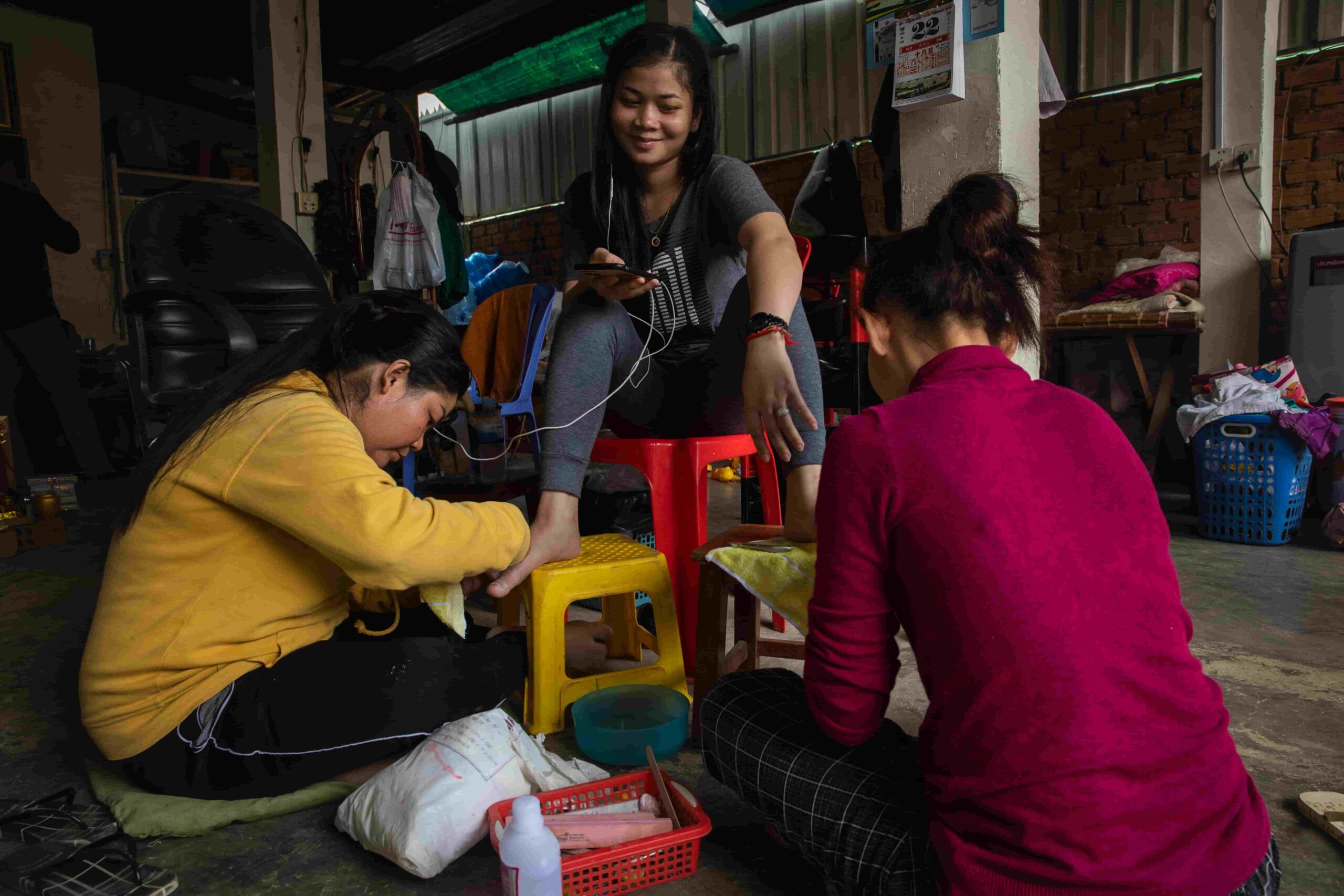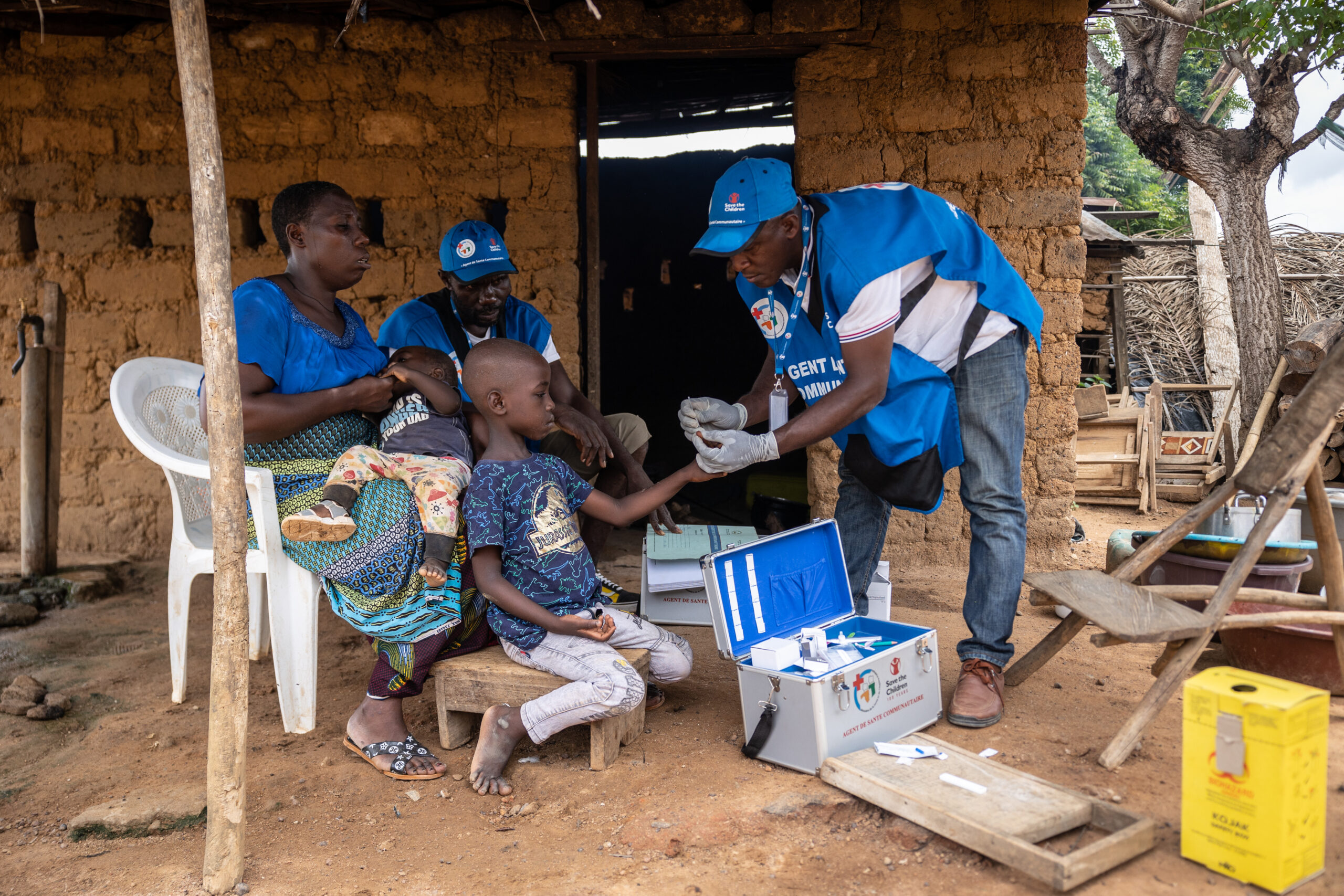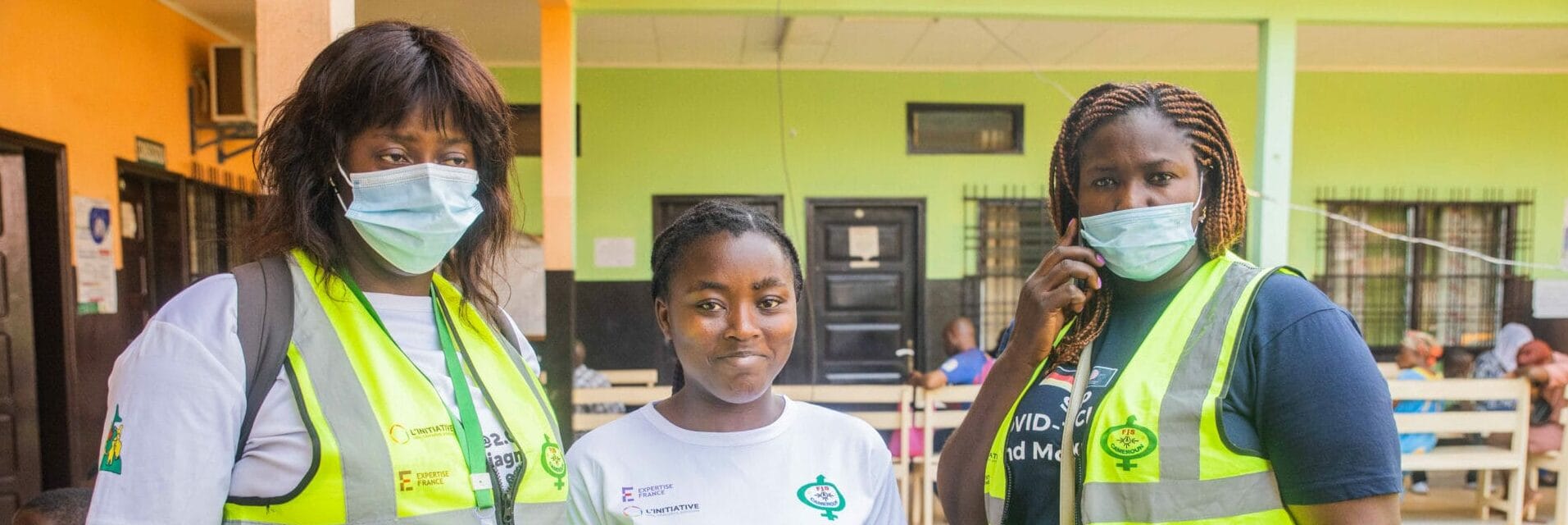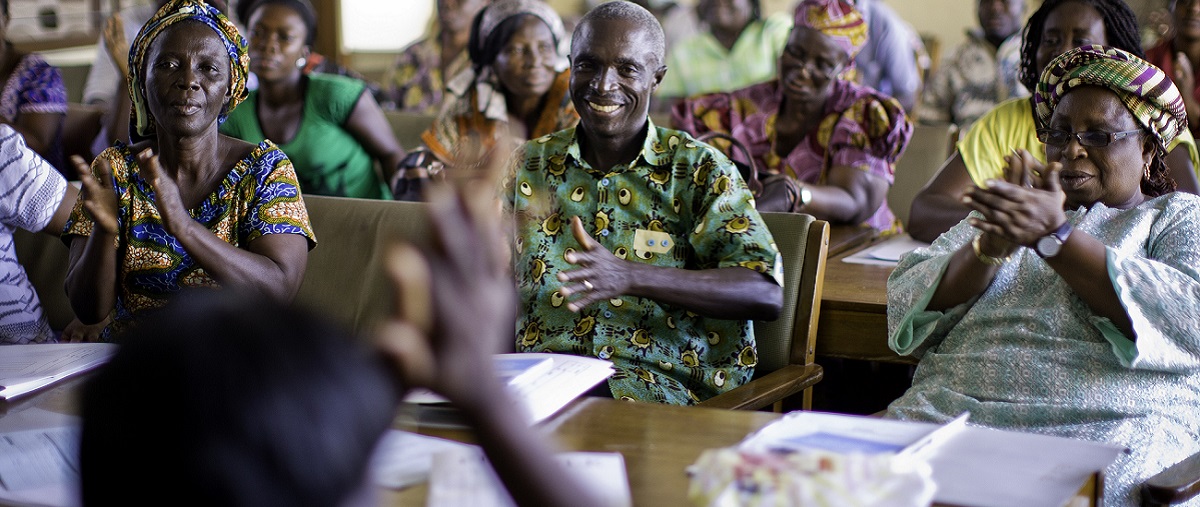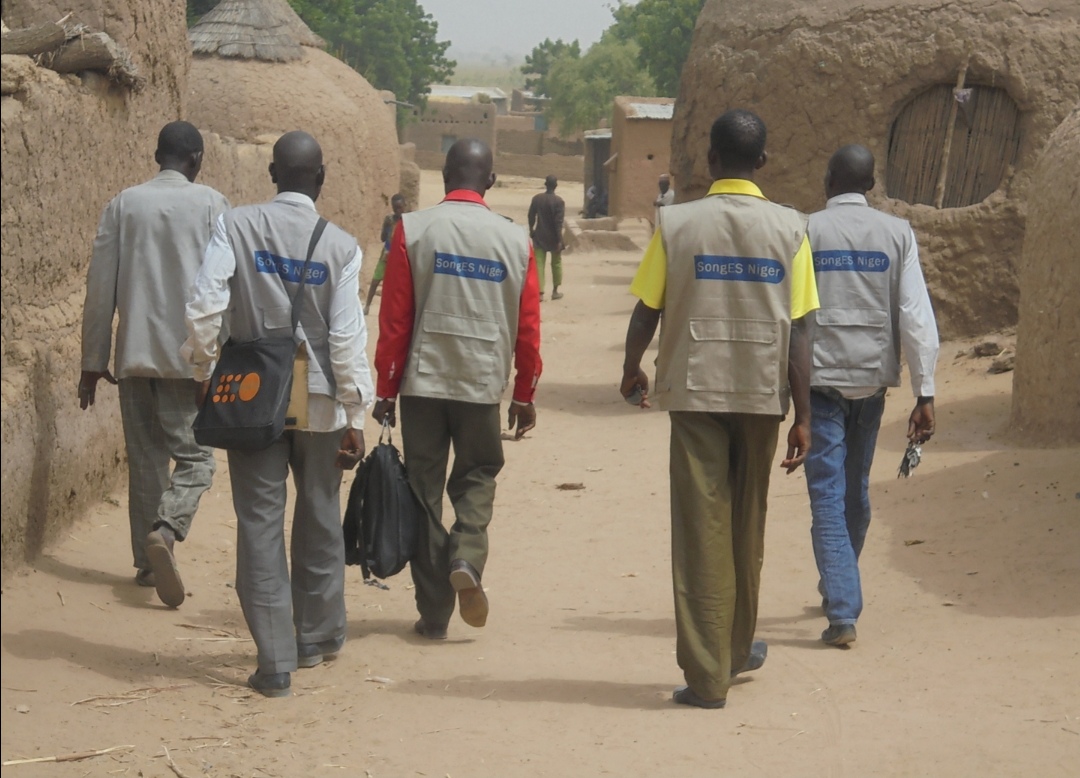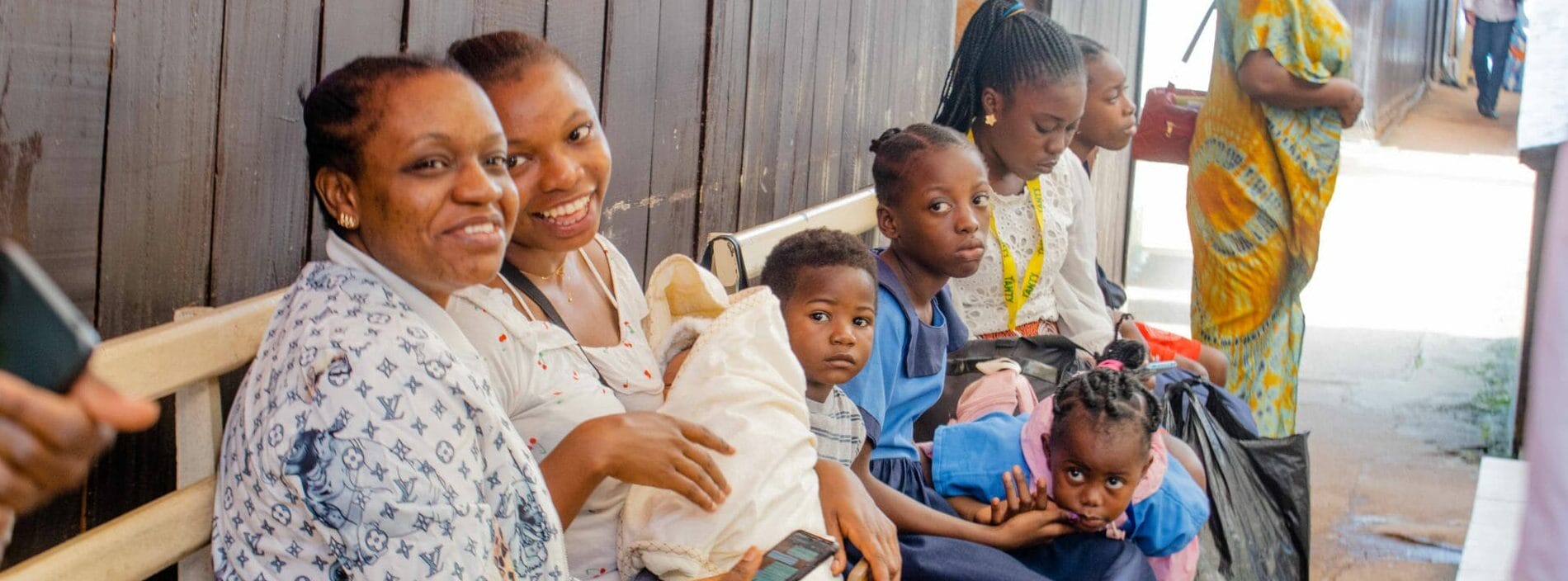After the TB Masterclass, Supporting Six Operational Research Projects
In December 2023, L’Initiative organized a TB Masterclass to train a new generation of researchers in Francophone Africa. These young researchers were invited to submit operational research projects aimed at supporting national tuberculosis control programs. Six projects were selected and awarded €25,000 in funding, along with mentorship and monitoring over an 18-month period. The supported researchers will present their findings at a conference in 2026.
1.25 million people died from tuberculosis in 2023, according to the WHO. Numerous initiatives are being carried out to better understand and combat this disease, including the TB Masterclass, which took place in December 2023 in Cameroon. Organized by L’Initiative, in collaboration with the Pasteur Center of Cameroon and several institutional partners, the Masterclass aimed to reinvigorate tuberculosis research, a fundamental pillar in the fight against the disease, in Francophone Africa, and to build a network of young African researchers. The program is now entering its second phase.
The 2023 cohort consisted of thirty participants from sixteen countries. The week-long Masterclass covered a wide range of topics, featuring contributions from doctors, pharmacists, clinicians, biologists, epidemiologists, and social science researchers. This multidisciplinary approach played a key role in its success.
Throughout the training week, participants worked in groups to develop research projects—a well-received approach that fostered collaboration between researchers from different countries.
After this initial phase, six participants were selected for a mentorship program to support their operational research projects. In addition to a comprehensive training program covering various aspects of research—from project development to communication—the awardees received €25,000 seed grants per project, co-financed by L’Initiative and Tropical Diseases Research (TDR), a WHO program. They also benefit from long-term individualized mentoring, offering these young researchers their first opportunity as principal investigators in a research program.
Strengthening Tuberculosis Research Capacity
“West and Central Africa need to strengthen their tuberculosis research capacity. At WHO/TDR, we believe this is key to controlling the disease,” explains Corinne Merle, public health physician at the WHO Special Programme for Research and Training in Tropical Diseases. This program aims to strengthen research efforts on poverty-related diseases, particularly infectious diseases such as tuberculosis, neglected tropical diseases, and malaria.
Although Francophone African countries have research institutions, their work is not always aligned with national tuberculosis control priorities. To address this, the second phase of the TB Masterclass focuses on strengthening the research capacities of young scientists who are well integrated into national tuberculosis control programs (NTPs). Their projects are designed to deliver targeted, operational solutions within a short timeframe. “Since 2015, we have been collaborating with these countries through the West and Central African Regional Network for Tuberculosis Control (WARN/CARN-TB), established by TDR,” adds Corinne Merle. This network, headquartered in Benin, brings together NTPs from 27 countries across West and Central Africa, facilitating regional coordination and research collaboration.
Six Operational Research Projects Funded
The first results from the six operational research projects, co-funded by L’Initiative and TDR, are expected by late 2025. “We will promote these projects and support them in securing further funding, as all the researchers are eager to continue,” says Corinne Merle. “This should not be a one-time, limited form of assistance; there must be continuity for these projects.” To ensure long-term support, a mentorship system has been established, involving local experts from NTPs in the region who have developed expertise in research. “The WARN/CARN-TB secretariat is also providing guidance, ensuring that researchers can seek help from network experts,” adds Corinne Merle. “For example, TDR has strengthened a data management team in Senegal that can support these projects. The goal is to prevent researchers from feeling isolated. Combating tuberculosis requires strong teams that stay connected with experts and institutions, where NTPs play a central role in identifying problems and developing solutions.”
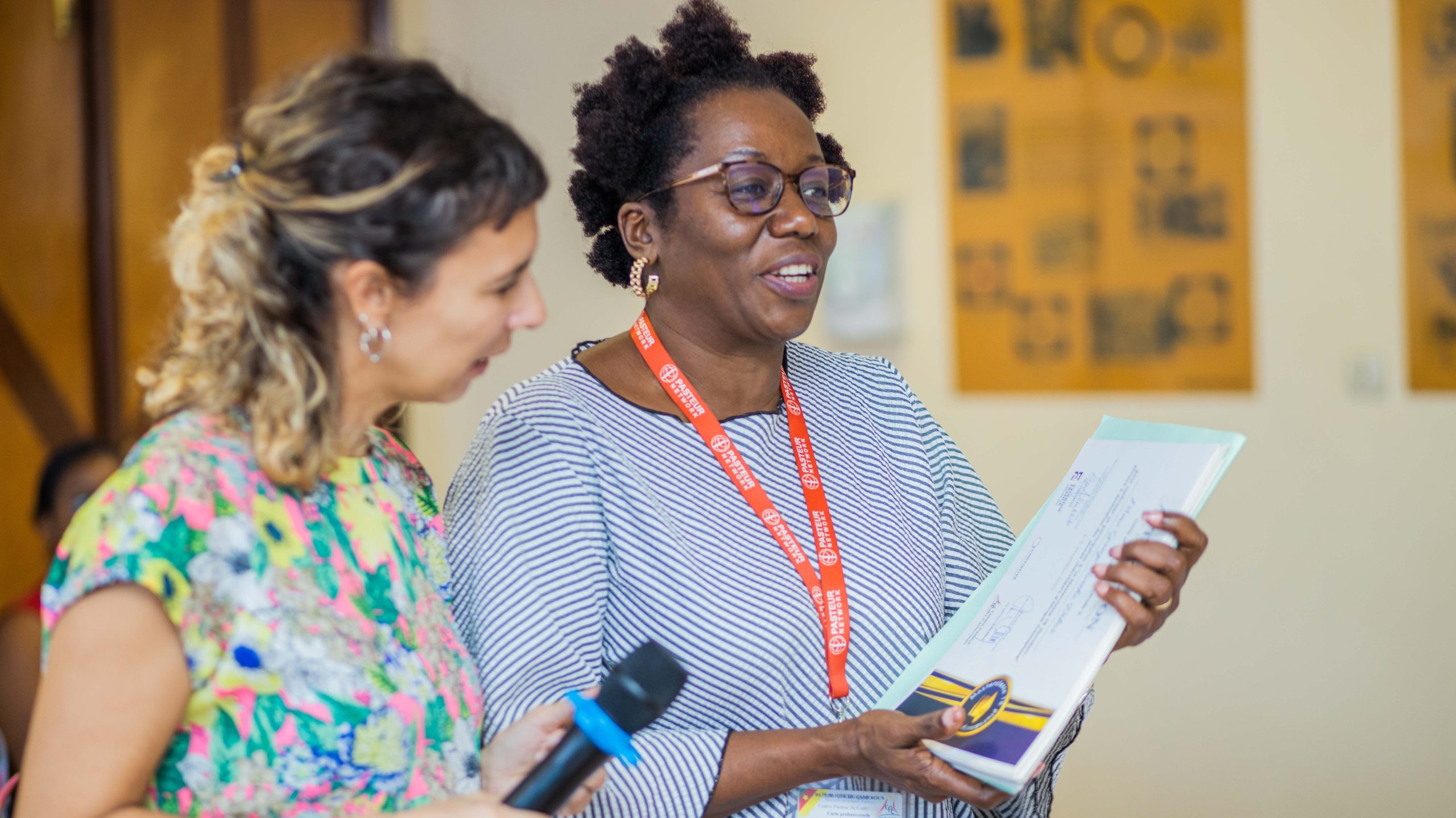
Following the Tuberculosis Masterclass, six operational research projects were selected
to support national tuberculosis control programs.
In Cameroon, Research on Preventive Tuberculosis Treatment
Virginie Poka Mayap is one of the awardees of the TB Masterclass. A pulmonologist at Jamot Hospital in Yaoundé, Cameroon’s leading facility for respiratory disease treatment, she also holds a master’s degree in public health and collaborates with the Cameroon NTP for her research project.
“The Masterclass was an incredibly enriching experience,” says Virginie Poka Mayap. “There were insightful lectures, and I had the opportunity to meet international experts and colleagues who share my passion for tuberculosis research. This field requires staying up to date with the latest scientific developments. I gained valuable knowledge that I now integrate into my daily clinical practice and research.”
Her project focuses on adherence to preventive tuberculosis treatment among children under five years old. Various social and cultural barriers prevent some children who have been in contact with TB patients from receiving preventive treatment. In fact, 45% of at-risk children do not receive preventive therapy. Tuberculosis is highly contagious, especially in overcrowded, disadvantaged environments. The stigma associated with the disease often leads some parents to refuse treatment for their children unless they are already symptomatic.
“We want to understand why some families refuse these treatments, despite them being free,” explains Virginie Poka Mayap. “We will conduct a quantitative and qualitative cohort study to determine adherence rates among children and identify the key factors preventing them from taking their treatment.” The project is set to launch at the end of March 2025.
“I want to express my team’s gratitude for the opportunity to implement this research project,” she emphasizes. “Under the support of international institutions, we have received both financial and technical assistance. This has empowered us, giving us the courage and determination to carry out our work on tuberculosis.”
In Madagascar, Saving Patients Through Operational Research
Another TB Masterclass awardee, Dr. Joëlle Razafimahefa, is a pathologist who also conducts research and teaches at the Faculty of Medicine in Fianarantsoa, Madagascar. Her project focuses on the often-overlooked role of domestic and wild animals in tuberculosis transmission, known as zoonotic tuberculosis, which is caused by the Mycobacterium bovis bacterium.
“The idea came to me because, as a pathologist, I encountered around a hundred cases of extrapulmonary tuberculosis per year—a difficult-to-diagnose form that clinicians often missed,” explains Joëlle Razafimahefa. “I wondered why there was such a high incidence of this rare form, which is resistant to treatments like pyrazinamide.”
She then made the connection to the importance of zebu cattle farming in her region, in southeastern Madagascar. Her project examines the impact of close human-livestock interactions, aiming to develop more effective tuberculosis control strategies. Additionally, the study extends to lemur populations and other wild species living in national parks, which could also play a role in TB transmission.
“If we want to fully eradicate tuberculosis, we must consider zoonotic forms, which are often neglected and poorly documented,” she emphasizes. “The grant and mentorship will allow me to move from fundamental research to operational research that directly helps patients and saves lives. I want to thank L’Initiative, WARN/CARN-TB, TDR, the Pasteur Center of Cameroon, and the NTP of Madagascar for helping me bring this project to life.”
Corinne Merle, from TDR, also highlights the significance of collaboration: “At TDR, we are very pleased with this partnership with L’Initiative. Given our shared goals and eligible countries, as well as the scarcity of funding, it makes perfect sense to join forces and leverage our respective strengths. This project is a great example of synergy that enhances the impact of our activities in these countries.”

